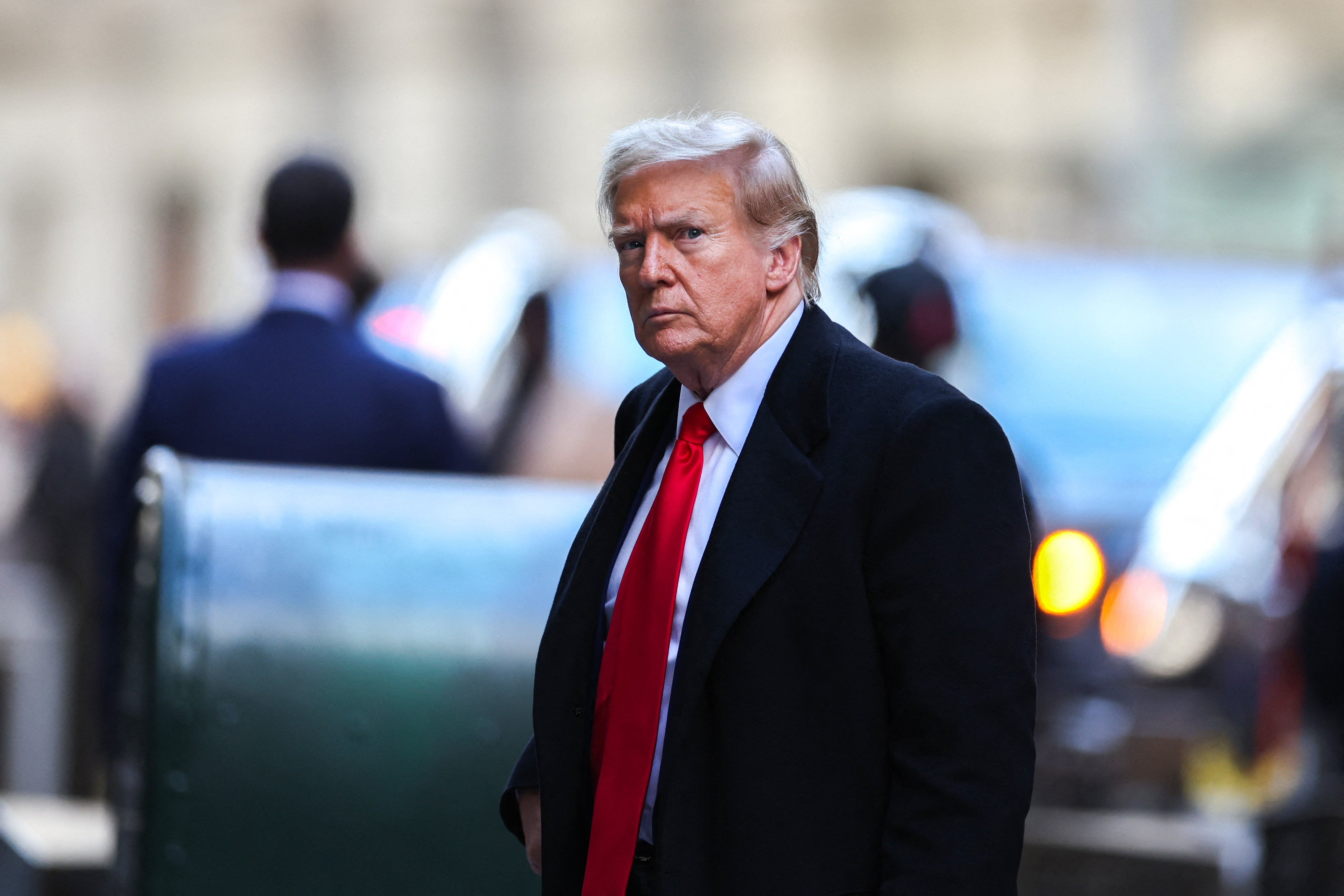How did Trump pay his $175m fraud bond – and who helped him?
Former president was bailed out by Knight Specialty Insurance Company just days before his latest New York fraud case deadline
Your support helps us to tell the story
From reproductive rights to climate change to Big Tech, The Independent is on the ground when the story is developing. Whether it's investigating the financials of Elon Musk's pro-Trump PAC or producing our latest documentary, 'The A Word', which shines a light on the American women fighting for reproductive rights, we know how important it is to parse out the facts from the messaging.
At such a critical moment in US history, we need reporters on the ground. Your donation allows us to keep sending journalists to speak to both sides of the story.
The Independent is trusted by Americans across the entire political spectrum. And unlike many other quality news outlets, we choose not to lock Americans out of our reporting and analysis with paywalls. We believe quality journalism should be available to everyone, paid for by those who can afford it.
Your support makes all the difference.Donald Trump has now paid the $175m bond in his New York civil fraud case, a week after he was handed a lifeline by an appeals court granting him a 10-day extension and slashing the $464m value by more than half.
After an 11-week jury trial, Mr Trump and his fellow Trump Organization executives were found liable for inflating the value of company assets in order to obtain favourable terms from banks and insurers between 2011 and 2021. He was hit with penalties of $354m plus more than $110m in interest.
But after Judge Arthur Engoron handed down the verdict on 16 February, the Republican presidential candidate’s attorneys complained that they were finding it a “practical impossibility” to raise the full $464m for the bond needed to appeal the case, after approaching more than 30 surety companies through four separate brokerages.
That left Mr Trump facing the prospect of seeing the crown jewels of his New York real estate empire repossessed by state Attorney General Letitia James, before the panel of appellate division judges granted him an unexpected lifeline last week.
On Easter Monday, Mr Trump finally posted the $175m bond – preventing Ms James from seizing his assets (for now) and buying him time before the appeals court takes his case in September at the earliest.
The former president secured the bond through the Knight Specialty Insurance Company.
“As promised, president Trump has posted bond,” the former president’s attorney Alina Habba told ABC News in a statement.
“He looks forward to vindicating his rights on appeal and overturning this unjust verdict.”
Knight Specialty is owned by California businessman Don Hankey, whom MSNBC legal correspondent Lisa Rubin reports is known as “the king of subprime car loans”, specialising in lending to automobile buyers with poor credit ratings at high rates of interest.
“Hankey repossesses around 250 cars every day and his debt collectors have been known to spoof their caller ID so it appears that they are calling from the local pizzeria,” Forbes wrote of him in 2015.
Mr Hankey was placed 128th on Forbes’s 400 List in 2023 and 317th on its Billionaire’s roster for the same year.
He is also a prolific Republican donor and the largest shareholder in Axos Bank, which was founded in San Diego in 2000 under the name Bank of Internet USA. The bank refinanced loans on Mr Trump’s Trump Tower complex in Manhattan and his Doral golf resort in Miami, Florida, in 2022, worth $100m and $125m respectively. Those loans are due for repayment by 2032.

Axos Banks was also involved in the $375m sale of the Trump International Hotel in Washington DC that same year.
“This is what we do at Knight Insurance, and we’re happy to be able to accommodate the ex-president in this situation,” Mr Hankey told ABC after the company’s involvement in the bond was revealed.
“I’d say it’s more of a business decision, but I happen to be a supporter also.”
He revealed his company had been involved in negotiations about paying the full amount at an earlier stage.
He also claimed that Mr Trump had put up the collateral in cash.
“It was a relatively low number, and Donald Trump put up all the collateral in cash,” he said.
Mr Hankey told the network he could not recall whether Mr Trump also used bonds as collateral for the finalised bond but said his firm had carried out a review of the former president’s offering and found “grade-A bonds, investment grade quality securities”.
“We’re confident that we have very good collateral,” he said.
Mr Trump could lose his appeal against the fraud judgement and, assuming he is not able to pay the full amount at that stage, Ms James would be able to begin taking ownership of some of his most treasured properties like Trump Tower or 40 Wall Street.
She began taking the first steps towards repossession of Mr Trump’s assets in Westchester County last month in anticipation of the defendant not being able to place the bond.

Join our commenting forum
Join thought-provoking conversations, follow other Independent readers and see their replies
Comments